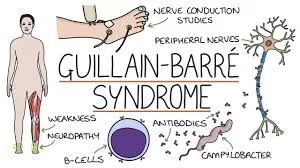Baku, Azerbaijan – November 13, 2024 — A new United Nations report has sounded the alarm on nitrous oxide (N₂O), a powerful greenhouse gas, which is accelerating climate change, depleting the ozone layer, and posing an urgent threat to global public health. The Global Nitrous Oxide Assessment, released Tuesday at the COP29 Climate Conference in Baku, Azerbaijan, emphasizes that unchecked nitrous oxide emissions could severely jeopardize the 1.5 degrees Celsius warming target outlined in the Paris Agreement.
The Assessment, co-published by the United Nations Environment Programme (UNEP) and the Food and Agriculture Organisation (FAO), warns that nitrous oxide emissions are rising faster than anticipated, calling for immediate international action. Emitted primarily from agricultural activities, particularly the use of synthetic fertilizers and manure, nitrous oxide is approximately 270 times more effective at trapping heat in the atmosphere than carbon dioxide. The gas is now responsible for around 10% of net global warming since the Industrial Revolution and is the leading ozone-depleting substance still being released into the atmosphere.
In addition to exacerbating climate change, rising nitrous oxide levels pose a significant public health risk by slowing the recovery of the ozone layer, which protects the Earth from harmful ultraviolet (UV) radiation. Failure to address these emissions could leave large portions of the global population vulnerable to elevated UV levels, increasing risks of skin cancer, cataracts, and other health issues associated with higher UV exposure.
According to the Assessment, proactive measures to cut nitrous oxide emissions could help prevent up to 20 million premature deaths worldwide by 2050. Furthermore, substantial emission reductions could mitigate the equivalent of 235 billion tonnes of carbon dioxide by 2100, an impact equal to six years of global CO₂ emissions from fossil fuel use.
“The Assessment findings are clear: without a substantial decrease in nitrous oxide emissions, we are unlikely to meet our climate targets,” said UNEP Executive Director Inger Andersen. “The strategies outlined provide a pathway to achieve deep reductions, which are essential for the well-being of both our planet and our people.”
The report highlights several potential solutions, including shifting to more sustainable agricultural practices, reducing reliance on nitrogen-rich fertilizers, and improving nitrogen management. By transforming food production systems, global nitrogen emissions could be reduced by more than 40% from current levels, with the potential for even deeper cuts through concerted, cross-sectoral efforts.
As nearly 200 nations meet in Baku for COP29, the release of the Global Nitrous Oxide Assessment has sharpened the focus on this under-recognized but highly impactful greenhouse gas. With a growing consensus that immediate action is necessary, the Assessment presents both a warning and a roadmap, underscoring that reducing nitrous oxide emissions is not only feasible but also essential to achieving global climate and health goals.











